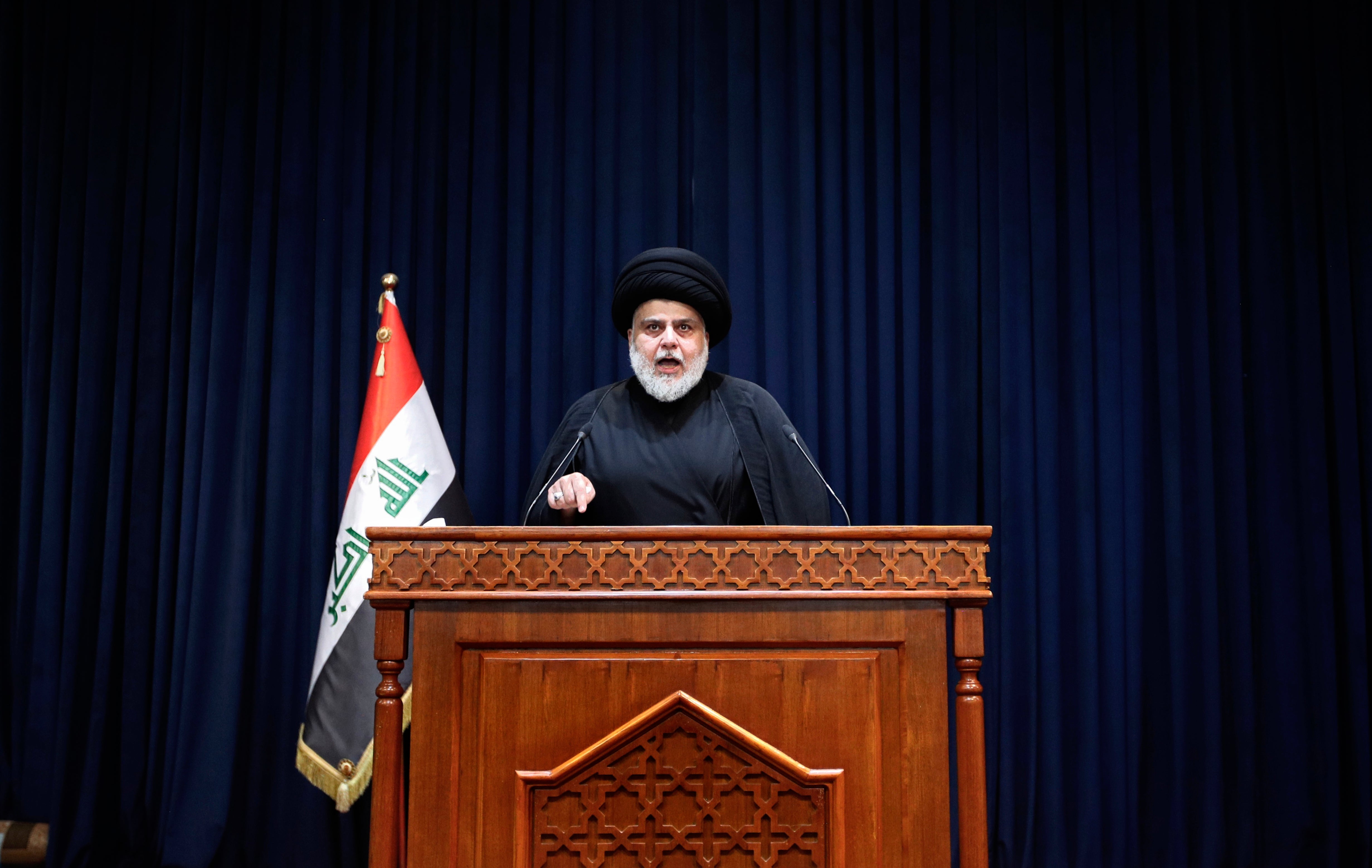4 militiamen killed in reprisal attacks in southern Iraq
Iraqi security officials say four militiamen have been killed in reprisal attacks between rival Shiite militia groups

Your support helps us to tell the story
From reproductive rights to climate change to Big Tech, The Independent is on the ground when the story is developing. Whether it's investigating the financials of Elon Musk's pro-Trump PAC or producing our latest documentary, 'The A Word', which shines a light on the American women fighting for reproductive rights, we know how important it is to parse out the facts from the messaging.
At such a critical moment in US history, we need reporters on the ground. Your donation allows us to keep sending journalists to speak to both sides of the story.
The Independent is trusted by Americans across the entire political spectrum. And unlike many other quality news outlets, we choose not to lock Americans out of our reporting and analysis with paywalls. We believe quality journalism should be available to everyone, paid for by those who can afford it.
Your support makes all the difference.Four militants were killed in reprisal attacks between rival Shiite militia groups in southern Iraq, two security officials said Thursday, after violent clashes in Baghdad brought the country to the precipice of street warfare.
Iraqi security forces were swiftly deployed in the southern oil-rich city of Basra to contain the violence that erupted overnight between an armed faction of powerful cleric Muqtada al-Sadr and the Asaib Ahl al-Haq paramilitary group, led by a key, Iran-backed rival.
Two militiamen from al-Sadr's group Saraya Salam and two from AAH were killed in the attacks, the officials said, speaking on condition of anonymity because they were not authorized to brief the media. The details of the attacks were not immediately clear and there were conflicting reports.
The attacks come after clashes in Baghdad's government zone between al-Sadr's loyalists and Iraqi security forces left at least 30 people dead and over 400 wounded. The armed hostilities ended on Tuesday when al-Sadr called on his followers to withdraw.
The threat of more clashes looms as the political rivalry between al-Sadr and his Iran-backed rivals in the Coordination Framework bloc, which includes the leader of AAH, Qais al-Khazali, have not been settled.
Both camps disagree over the appropriate mechanism to dissolve parliament and hold early elections, key demands of al-Sadr. His party won the 2021 general election but was not able to reach the legislative quorum to vote in a government that excluded his Iran-friendly rivals.
The U.N. Security Council condemned the recent violence, appealed for “calm and restraint,” and urged all parties to peacefully resolve their difference and respect the rule of law and the right to peaceful assembly..
A Supreme Court session to decide on whether the judiciary can dissolve parliament, a demand of al-Sadr, has been postponed to next Wednesday. A negative ruling is expected to elicit a reaction from the cleric.
For now, the tensions appear to have migrated from Baghdad to the southern majority Shiite provinces where the state's authority is frayed. Saraya Salam and AAH have been engaged in revenge attacks for years. The clashes in Baghdad led to the recent flare-up when al-Sadr's militiamen attacked AAH's offices.
In retaliation, AAH attacked al-Sadr's militiamen and a battle ensued for several hours throughout the night. By Thursday morning, Basra's governor, Asad al-Eidani, said calm had been restored.
Al-Sadr's representative who goes by the Twitter moniker Salah Mohammed al-Iraqi hurled a personal attack against Khazali following the altercations, calling his militias “mad dogs."
Khazali later instructed his followers not to be provoked by the comments and for AAH to close their offices until further notice.